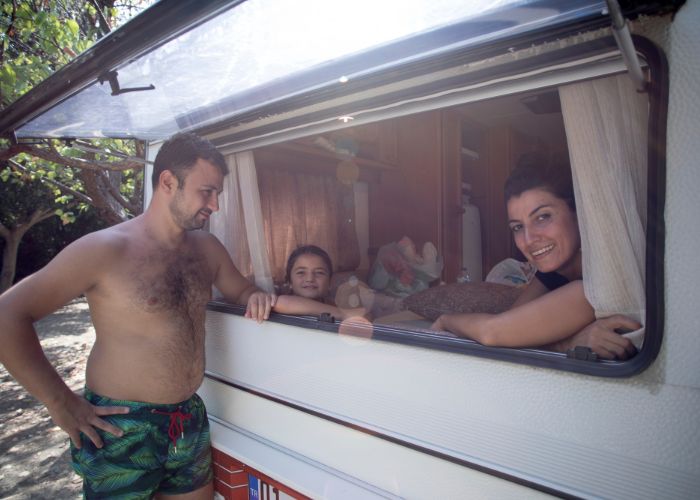It is becoming increasingly popular to go on holiday with a camper or caravan. Are you planning your vacation and wondering which papers to bring with you? Below we explain which documents should not be missing in your glove compartment (or on your mobile).
The Easter holiday is behind us now, and like every year we are already looking forward to our next holiday. For many of us, the summer holidays are the only opportunity to travel long distances and discover special places. And furthermore, some do so with a motorhome. Others prefer to have their caravan in a permanent place. But you must in any case have the mandatory documents with you for your holiday vehicle for both national and international trips.
Related post: Campervan and motorhome holidays increasingly popular in Spain
It is important to know that – with a few exceptions – the papers are the same as for a passenger car. However, those exceptions depend on the weight of the vehicle you are travelling in. According to the regulations, a caravan is a trailer, while a motorhome falls under the rules of company cars. The latter is partly because a motorhome is made on the same chassis as a commercial vehicle, such as a Fiat Ducato or a Ford Transit. This is also apparent from the registered weight class.
Driver’s license
According to the DGT (the Spanish DVLA), you must have the following three valid documents with you when you travel. The first, logically, is your driver’s license. A driving license B is sufficient as long as everything together does not weigh more than 3.5 tons. If you have a Spanish driver’s license, you can also take your driver’s license on your mobile with the miDGT app. Then you have no excuse at all not to have it with you!
Certificate of Insurance
Many people also take their insurance policy or proof of the last payment of their car insurance with them. However, since 2008 this is no longer a requirment. Please note: this still applies to rental cars. So do not drive away from the rental company before you have checked this.
Related post: What you need to know before travelling through Spain with your campervan
Registration Certificate and ITV Inspection
As with passenger cars, you must also have the registration certificate with you in Spain. And, if applicable, the ITV (Tarjeta de Inspección Técnica – the proof of the last MOT). For caravans of more than 750 kilos, you must carry out the first inspection after 6 years. And then every two years thereafter. However, this is not mandatory for lighter caravans. In that case, you do not need an extra endorsement on your driver’s license. Nor do you need a contract for additional insurance. As the DGT indicates, it is sufficient to show the number plate of the car to which the caravan is attached, in the right place, and visible.
About motorhomes, the same periods apply for the MOT in Spain as for passenger cars: four years after the first registration they have to go for the first MOT and then every two years until they are ten years old. After that, they must be inspected every year.
And which documents do you need to travel outside Spain?
Before you go to another country, it is wise to check whether your driver’s license is also valid there or whether you need an international driver’s license. An international driving license is not required if you are travelling within the European Union (EU) or the European Economic Area (EEA). If you have a Spanish driver’s license, you do not need an international driver’s license if you go to a country with which Spain has a bilateral treaty.
Green card
Sometimes it is also necessary to bring the so-called Green Card. With this document, you can demonstrate that you have taken out compulsory third-party liability insurance to compensate for personal or material damage that you could cause to third parties with your vehicle.
The Green Card can be issued by your insurance company. If an accident occurs, the law of the country where the accident takes place applies. This means that if you are involved in an accident and you are the cause, the costs and other consequences may turn out differently than in Spain or the Netherlands.
As the DGT points out, the Green Card is not mandatory in the EU, nor in Andorra, Iceland, Liechtenstein, Norway, and Switzerland. But in Albania, Azerbaijan, Belarus, Bosnia-Herzegovina, Iran, Israel, North Macedonia, Morocco, Moldova, Montenegro, Russia, Serbia, Tunisia, Turkey, and Ukraine.
Valid European health insurance card
Finally, it is also useful if you have a valid European health insurance card with you. This is sometimes forgotten but can be important if you have health problems abroad.


